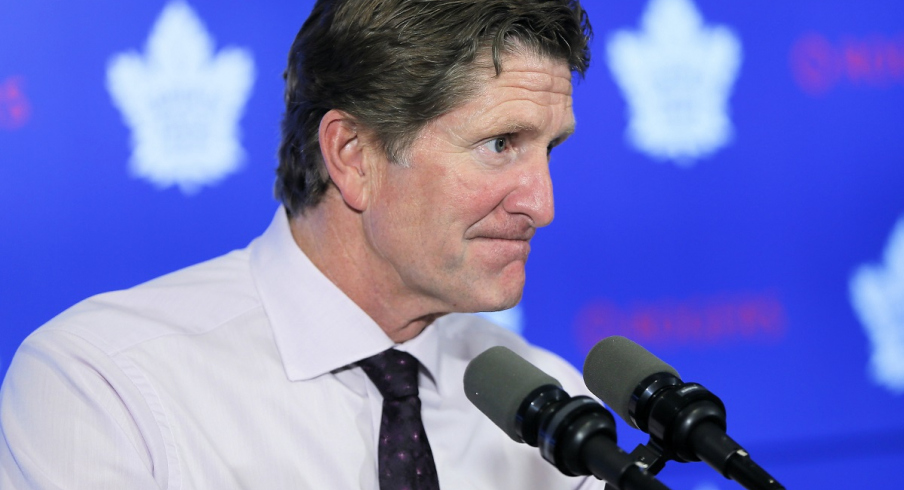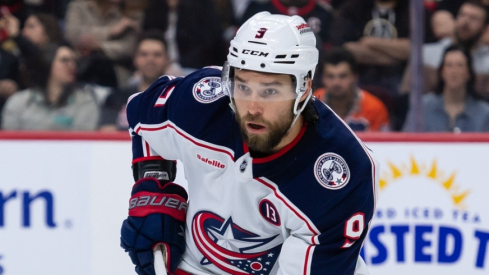The Columbus Blue Jackets are reportedly set to hire Mike Babcock to become their next head coach.
And while much of the commentary thus far has been related to his off-ice issues, the reality is that he's being brought in to win hockey games. So, what is it that has allowed him to win 700 games at the NHL level and two Olympic Gold Medals? Here's a quick primer on his coaching past:
Babcock was an early adapter of the puck possession style of play widely utilized today. His teams generally relied on skill and puck possession as a means to generating offense. Some of this had to do with his personnel. In Anaheim, Detroit, and Toronto, he was (at times, though not always) blessed to have a talented team that could often dictate terms over a weaker opponent. His star-studded casts of players could often overwhelm opposition while the lesser players played their shutdown roles to perfection.
Somewhat ironically, Babcock's demise in Toronto went from his team's being an up-and-coming skilled team that looked to be on the verge of a Stanley Cup to a stagnant, point-shot-heavy team that lacked high-danger scoring chances. This perimeter game led to fewer chances against, which was (probably) by design but failed to help its star players flourish. In his defense, some of his top minute-munching defensemen, like Morgan Reilly, Tyson Barrie, and Jake Muzzin, were and are heavy shot producers from the point. Again, this tactic could have been purposefully implemented by a coaching staff that was looking to a) take pressure off its young star players to score transition/flashy goals and b) help prevent quality-scoring chances-against. But it ultimately led to his firing.
Babcock, who said the number one skill you need to coach in the NHL is confidence, will be tasked with adding that confidence to a Blue Jackets team that finished with the second-worst record in the league last season. He said, in that 2017 interview with Sportsnet's Dan Robson, “Each team you coach is different and every person is different, so when you coach the team you have 23 different plans for 23 different players.
The Blue Jackets and Babcock are an interesting pair, as his last venture showed him unable to fully adapt to a changing game and culture. Again, omitting the off-ice incidents, he was criticized for being an authoritarian coach in the sense that once a player was targeted as having a certain role, it was difficult for him to move away from that. This led to tension and a 'square peg in a round hole' problem for some of his younger players, who couldn't adapt to the game they were being asked to play. That conservative ethos has really been on the decline in recent years, as coaches and GMs are giving more rope than ever to young (read: inexpensive) players.
But for all of the aforementioned doom and gloom, the reality is that Babcock is a sophisticated hockey mind and motivator. The question - the only question, really - is what kind of self-reflection has Babcock done in the years since the hockey world last saw him? Is he a changed person in terms of his approach to mental health? With a younger generation of players, particularly on this roster, that is a critical question. Similarly, has his time away from the NHL given him a chance to adapt to a new league, with new strategies and realities? If so, the Blue Jackets could be in for a great experience with a proven coach with a voice that can instill the correct tone in the locker room. If not, this could prove to be a disaster of a hiring, on and off the ice. Only time will tell.

